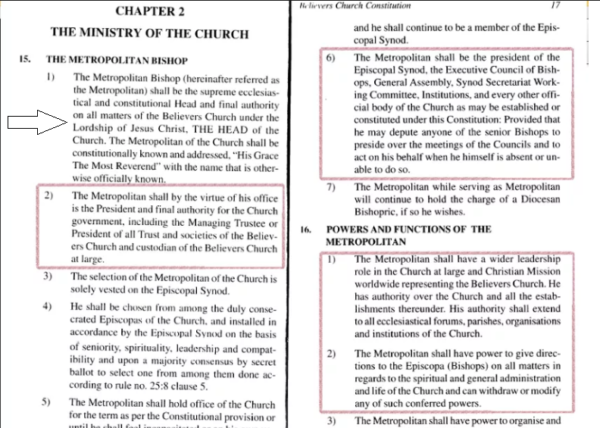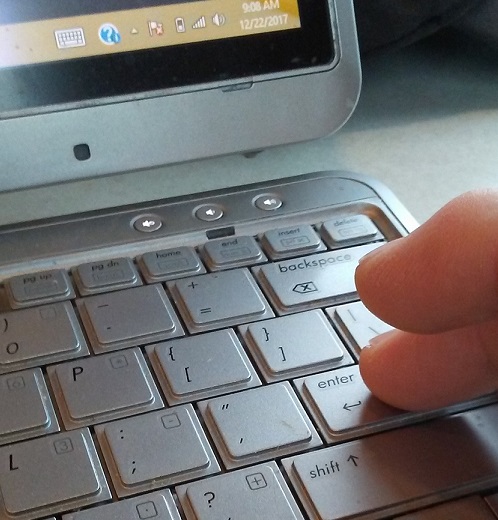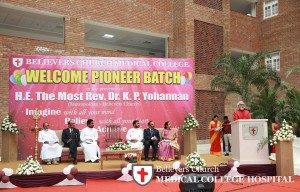Gospel for Asia’s Writ of Mandamus Contradicts Investigation Filed by Evangelical Council for Financial Accountability
On June 18, Gospel for Asia’s legal team took the extraordinary step of petitioning the 8th Circuit Court of Appeals for writ of mandamus which, if granted, would vacate Judge Timothy Brooks’ sanction of GFA and his order for a Special Master to oversee discovery in the fraud case against GFA brought by Garland and Phyliss Murphy. Earlier this month, Brooks found that GFA had willfully delayed discovery and failed to comply with court orders. In response, he sanctioned GFA and signaled his intention to give an attorney access to GFA’s records as a means to speed up GFA compliance with court ordered discovery of information in the case.
Despite being a nonprofit organization, GFA has faced repeated questions and frustration from Judge Brooks over the inability to produce sufficient responses to discovery requests. Now, with the prospect of additional transparency, GFA is seeking to have the action reversed through the Court of Appeals.
GFA’s Case
In their June 18 filing, GFA defendants claim that Judge Brooks should not have sanctioned them because they have done their best to produce documents showing how they spent donor funds. Judge Brooks recently ruled that GFA had not done enough and abused the discovery process. As a result, he sanctioned the mission group.
GFA now counters by claiming that Judge Brooks erred by assuming GFA leaders in the U.S., namely K.P. Yohannan, have more control over operations in India than they actually do. GFA attorneys claim Brooks presented no evidence that Yohannan has the power to compel the production of necessary documents.
GFA also claims that Judge Brooks did not adequately take into consideration the burden of discovery as compared to the claims raised by the case. Specifically, the Murphys donated nearly $35,000 but the discovery requests involved over $360-million in donations.
GFA’s 100% Claim
As a part of GFA’s prayer to the appeals court, they make some claims that are at odds with other information in the public record. GFA’s attorney’s state:
As explained in opposition to Plaintiffs’ certification motion, GFA encouraged donors to participate in the good works GFA was sponsoring in Asia, but it’s the representations it made to donors varied. ECF73. For example, GFA told many donors that “100% of what you give toward sponsorship goes to the field,” ECF1, ¶17, but donations must be made “without restrictions” with GFA retaining discretion to use donations to best fulfill its mission. ECF71 at 4. There was no guarantee that each of the $376 million donated would be used for its exact designated purpose.
There is little dispute that GFA frequently touted their claim to spend 100% of donations on the field. This became a point of contention after concerns about their spending practices in India became public. After that, GFA made some changes which allowed them more flexibility.
In 2015, when interviewed by the Evangelical Council for Financial Accountability, GFA representatives acknowledged the claim that they sent 100% to the field. On page 5 of the ECFA report to GFA, this admission is clear:
Use of funds restricted for the field for other purposes. On June 3, ECFA discussed GFA’s claim that 100 percent of field funds are sent and used in the field. GFA staff confirmed that this was accurate.
On August 24, ECFA was informed that GFA India made a gift to GFA of $19,778,613 in 2013 to complete GFA’s new office. On August 27, GFA’s staff confirmed that the funds relating to this donation were originally received by GFA as gifts restricted for the field and GFA transferred to field partners to fulfill donor restrictions.
It appears to me that the attorneys for all sides might want to interview the people who conducted and participated in this report. Here we have an admission that nearly $20-million was donated for field work but then was sent back to the U.S. for completion of the Texas headquarters. The ECFA report continues:
Reallocating gifts donated for field purposes contradicts GFA’s claim that 100 percent of funds are sent to the field. In fact, a significant amount of donations restricted for the field made a circuitous trip back to GFA and were used for the headquarters construction, as though they had never gone to the field. This appears to be a violation of Standard 7.1.
GFA claimed that the field partner (presumably Believers’ Church) took out a loan to pay back the $20-million and then used field generated money to pay back the loan. If that is the case, then it should be a simple matter to produce the documents.
In May 2015, defendant David Carroll told me via email:
Our field office is also audited by an independent accounting firm, to ensure compliance with regulations governing the recognition and spending according to donor designations of monies received.
While I don’t know if these audits have been offered as a part of the discovery process, I have to wonder if they actually exist.
GFA’s Claim About Control over the Field
GFA’s attorneys claim Judge Brooks used the wrong definition of control in reference to the GFA defendants. Furthermore, they claim no evidence was presented to support any theory of control. From the writ:
Plaintiffs did not introduce evidence to prove that Petitioners had control over the documents in India. Instead, the court’s decision relied on what it termed “the power of the pursestrings.” A00262, A00360. Because GFA made large donations to third parties in India, the court assumed that Petitioners could compel the third parties to produce the documents Plaintiffs wanted. The court’s assumptions are no evidence of control, regardless of which standard is applied.
The district court also assumed that control existed because Petitioner K.P. Yohannan held a prominent position in BEC, and his family members were allegedly involved in related entities. A00011. Of course, there is a significant difference between being an ecumenical leader in a church and having the legal right to compel production from over 12,700 churches all over India on demand. And involvement in transferring funds does not equate to the legal ability to compel production of documents (and bank records have already been produced). Plaintiffs offered no evidence to connect Yohannan’s family members with particular entities from whom documents were requested, nor do Plaintiffs show that Yohannan could compel these unnamed family members to use their alleged positions to obtain documents from any, much less, all of the 12,000 locations in India where documents are located. The district court’s reasoning is all based on assumptions of control, not evidence.7
Note here that GFA does not offer any evidence that Yohannan is without authority in India. Instead of asserting something, the attorneys simply cast doubt.
Why has GFA not produced documents describing Yohannan’s role in India? The only Constitution which can be found designates him as the supreme authority over all matters temporal and spiritual. He doesn’t just hold a “prominent position;” Yohannan is the supreme leader.
Yohannan’s son-in-law Daniel Johnson is on the board of Believer’s Church as is Yohannan’s niece Siny Punnose. Yohannan sits on multiple boards of the hospitals, schools, Bridge of Hope, and other entities in India and around the world. Yohannan’s name is on all of the deeds of property owned by the church.
This notion of no control in India was doubted in 2015 by the ECFA as well due to the church Constitution of 2003 which is the copy given to ECFA by GFA. In that Constitution, Yohannan is referred to in this way:
By virtue of the ecclesiastical position, the Metropolitan Bishop is the legal authority on everything that belongs to the Church.
Based on their review of documents and GFA’s statements about Yohannan, ECFA came to the following conclusion:
Based on this level of oversight and control as well observed during our review, ECFA staff questions whether GFA has a sound basis to disclaim any control over the activities of field partners.
In some respects, the ECFA investigation was a preview of the Murphy case. If the RICO case turns out like the ECFA investigation, GFA might want to consider a new legal strategy.


